The movies that lost the most money at the box office
Blockbusters that epically flopped

Hollywood studios invest hundreds of millions of dollars in the hopes of creating the next blockbuster, but not every film can achieve the resounding success of Avatar or Titanic.
Take Joker: Folie à Deux, for example. Despite the first Joker film becoming a billion-dollar hit, the sequel has failed to make the same impact at the box office and is now projected to lose a huge amount of money. But how much?
If you're curious about where Joker: Folie à Deux ranks among the biggest movie flops of all time, read on to discover which movies have lost the most money at the box office and why.
All dollar amounts are in US dollars. Pre-2022 figures have been adjusted for inflation.
Poseidon: lost $107.1 million (£82.3m)

Poseidon, a survivor thriller movie released in 2006, was directed by Wolfgang Petersen. Due to his previous success, with films such as Troy and The Perfect Storm under his belt, Warner Bros. confidently handed him a $160 million production budget for the project. However, the movie failed to make a splash. A poor script led to a wave of negative reviews, while a lack of big-name leads meant there was limited star power.
Technically, the film outperformed its production budget, with a worldwide gross of $181.6 million, but Warner Bros. had expected more. Overall, with the cost of a lavish marketing campaign factored in, it's estimated to have lost the studio a staggering $69 million, or $107.1 million (£82.3m) in today's money.
Pan: lost $113.6 million (£87.2m)
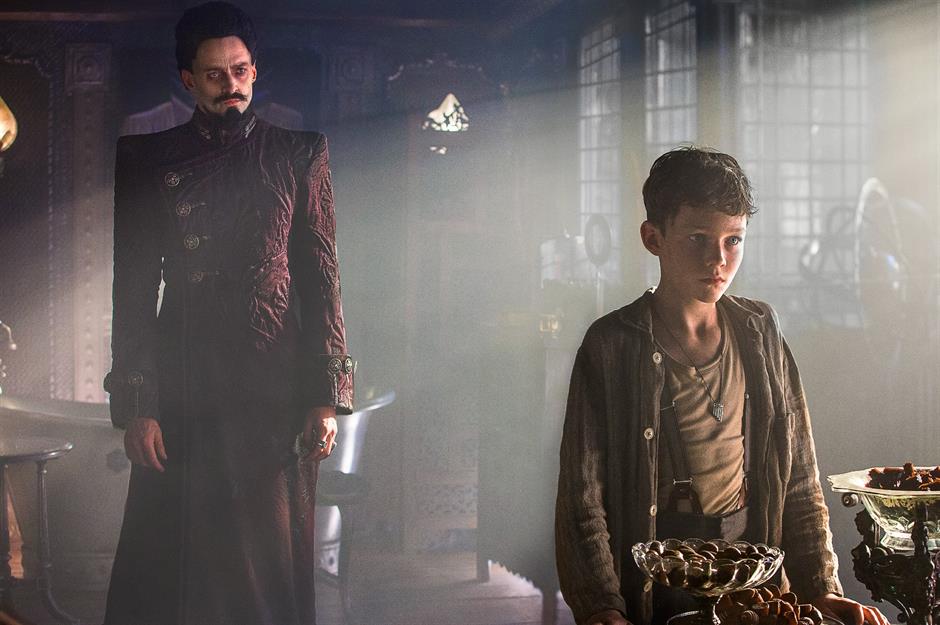
Released in 2015 by Warner Bros., Pan was an adaptation of J.M. Barrie's classic novel Peter Pan. Confident of cinematic success, the studio gave the movie a production budget of $150 million. Despite acclaimed director Joe Wright leading the project, Pan only managed to gross $128.4 million worldwide.
Several factors contributed to Pan's failure. To begin with, while Hugh Jackman played the role of Captain Hook, the movie's lack of major star names failed to appeal to the masses. Furthermore, critics slammed the film, with everything from the plot to the special effects criticised. It was also embroiled in a whitewashing scandal due to the Native American princess, Tiger Lily, being portrayed by Rooney Mara, a White actress. Factoring in marketing and distribution costs, the movie lost a far-from-magical $86.3 million. That's $113.6 million (£87.2m) in today's money.
Sponsored Content
Borderlands: $115 million (£88.3m)

Borderlands, a silver screen adaptation of the best-selling video game franchise, hit screens this August. According to Variety, it boasted a production budget of $115 million (£92.2m), while other estimates have placed it closer to $155 million (£119m) with a hefty $30 million (£23m) spent on marketing and distribution.
Despite its huge budget and an all-star cast, which included Cate Blanchett and Jamie Lee Curtis, the film received a slew of bad reviews. It grossed a meagre $33 million (£25m) globally, barely covering its marketing costs. It was rushed onto streaming services less than a month after opening in cinemas and is estimated to have incurred a loss of at least $115 million (£88.3m).
Tomorrowland: lost $118.7 million (£91.2m)

On paper, Tomorrowland was a sure-fire hit. Financially backed by Walt Disney Studios Motion Pictures, it starred one of Hollywood's most bankable leading men in George Clooney and also had a title inspired by a land at the globally adored Disney theme parks. The project was given a mammoth production budget of $190 million.
Yet despite all these factors in its favour, the film – which opened to mostly positive reviews – grossed $209 million globally, a mere $19 million more than its production costs. Factoring in promotional costs, Disney lost around $90.2 million, or $118.7 million (£91.2m) in today's money, with a cryptic marketing campaign failing to generate interest.
The Promise: lost $121.5 million (£93.3m)

The Promise, a romantic drama set against the backdrop of the 1915 Armenian Genocide, premiered in 2016 at the Toronto International Film Festival. It was subsequently picked up for distribution by Open Road Films, with high hopes that the combined star power of Christian Bale and Oscar Isaac would carry the film to cinematic success.
But it wasn't to be. The Promise pulled in a pitiful $12.4 million worldwide, $77.6 million less than its $90 million production budget. Overall, the picture is believed to have lost $93.6 million, or $121.5 million (£93.3m) in today's money.
Sponsored Content
R.I.P.D.: lost $124.1 million (£95.3m)
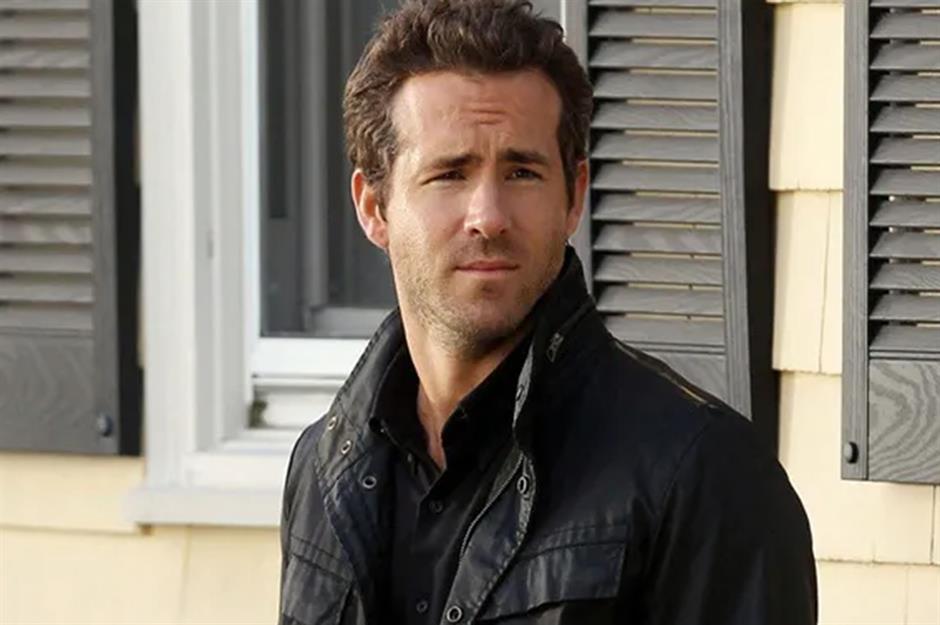
Ryan Reynolds is one of Hollywood's best-loved and most bankable stars, yet even he has experienced the pain of a box office failure, most notably in the form of 2013's disastrous R.I.P.D.. The film, which also starred Jeff Bridges and Kevin Bacon, reportedly had a production budget north of $130 million. Despite this, it only managed to gross $78.3 million worldwide, $51.7 million less than its production costs.
Universal Pictures, who distributed R.I.P.D., allegedly knew it was doomed long before they began promoting it, with the movie widely panned by critics. Even though it cut the marketing budget, it still lost $92.9 million, or $124.1 million (£95.3m) in today's money.
Hugo: lost $124.2 million (£95.4m)
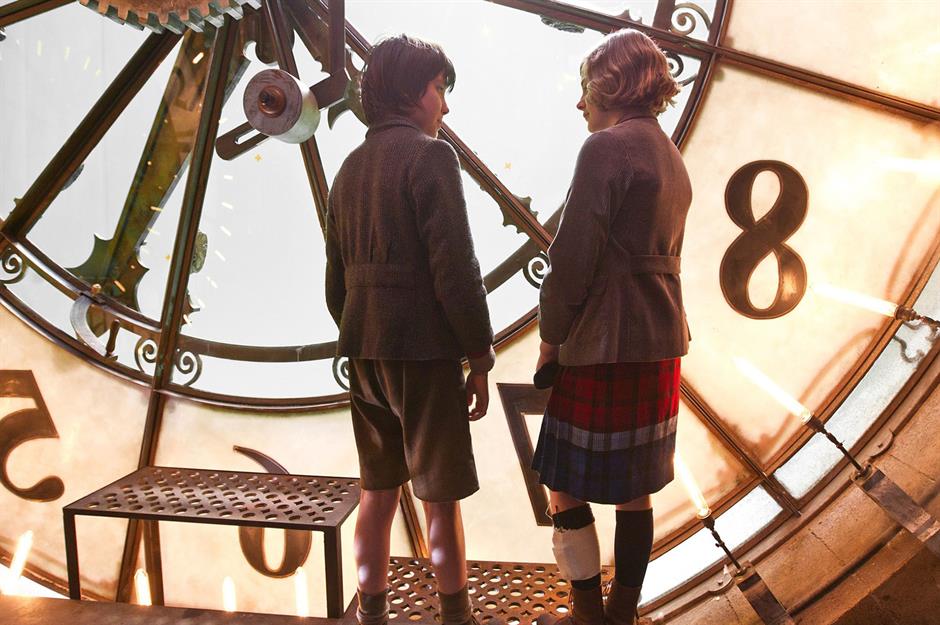
Martin Scorsese's Hugo dominated the 2012 Academy Awards, garnering 11 nominations and winning five gongs. Given this, it's even more surprising that the film was such a resounding flop at the box office. Paramount Pictures gave the movie a production budget of $156 million, yet it only grossed $185.8 million worldwide. Factoring in its significant marketing and distribution costs, it’s estimated to have lost around $91.5 million, or the equivalent of $124.2 million (£95.4m) when adjusted for inflation.
Hugo was another movie that suffered from poor marketing, with confusion surrounding its target audience. The fact it found itself pitted against some tough competition also contributed to its failure: The Muppets and The Twilight Saga: Breaking Dawn – Part 1 were both released on the same weekend.
Jupiter Ascending: lost $126 million (£96.8m)

Jupiter Ascending, directed by the Wachowskis, grossed $183.9 million worldwide, despite boasting a production budget of between $176 million and $200 million. As well as boasting acclaimed directors at the helm, the potential for the 2015 space opera shone bright thanks to the star power of Hollywood heavyweights Channing Tatum and Mila Kunis. So why did it fail?
While the film today has a cult fanbase, wider audiences at the time struggled to get on board with its high-concept sci-fi plot. This, alongside lukewarm opening reviews, resulted in moviegoers skipping it in favour of American Sniper and The SpongeBob Movie: Sponge Out Of Water. All in all, it’s estimated the film made a colossal loss of $95.7 million, or $126 million (£96.8m) in 2024 money.
Sponsored Content
Speed Racer: lost $128 million (£98.3m)

In 2008 Warner Bros. released Speed Racer, an action-comedy movie based on the anime series of the same name. The film starred Emile Hirsch and Christina Ricci, with both actors already popular thanks to movies such as Into the Wild and The Addams Family. Despite this, the flick grossed just $93.3 million worldwide, significantly less than its production budget of $120 million.
The downfall of Speed Racer was its confusing marketing campaign. The film was for children, yet the promotional activity focused on the fact that it was directed by the Wachowskis, who were famed for helming the Matrix franchise. As a result, many parents assumed the film was for adults and avoided taking their children to see it. All told, this blunder is estimated to have cost the studio $87.8 million, or $128 million (£98.3m) today.
47 Ronin: lost $128.5 million (£98.7m)

Keanu Reeves has fronted several cinematic smashes, including John Wick and the billion-dollar Matrix franchise. He's a big-name, bankable star and a safe bet for studios, yet even he isn't immune to the occasional cinematic flop. Take 2013's 47 Ronin, the Hollywood retelling of the Japanese legend, which earned only $151.8 million worldwide, despite a budget upwards of $170 million.
Universal's production appears to have been doomed from the outset. Carl Rinsch, a first-time director, reportedly struggled with the sheer size of the project, and the fact that Keanu Reeves was cast to represent a character of Asian heritage left some moviegoers frustrated. Add unfavourable opening reviews to the mix, and it's not surprising that its prospects were grim. Overall, the film reportedly lost $96.2 million, or $128.5 million (£98.7m) in today's money.
Evan Almighty: lost $131.8 million (£101m)
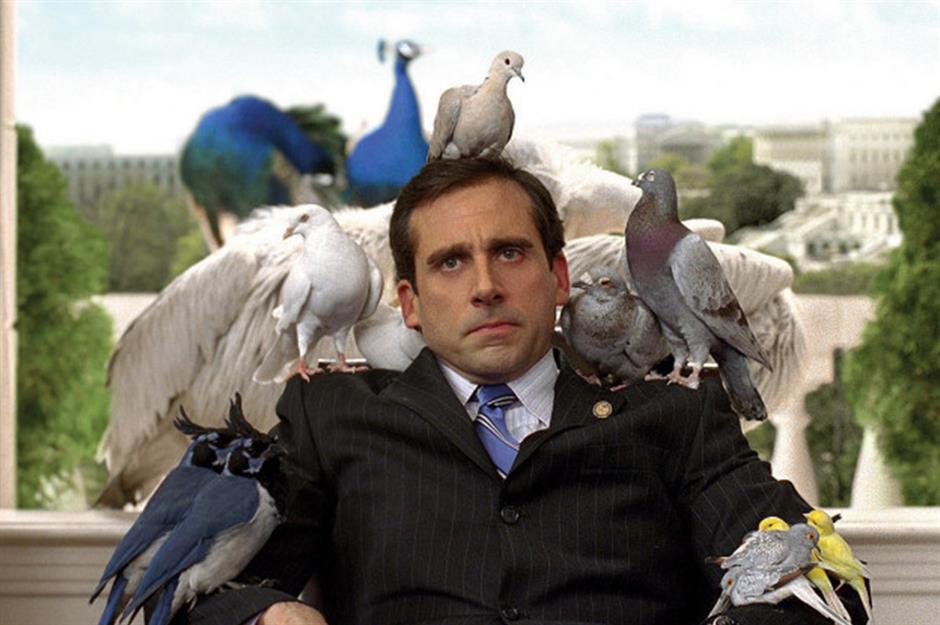
Following the success of Jim Carrey's 2003 comedy flick Bruce Almighty, Universal began work on a sequel. Evan Almighty's production budget was initially set at $140 million but was later increased to $175 million, making it one of the most expensive comedy movies in cinema history.
Despite that, Evan Almighty was a resounding flop at the box office, grossing just $174 million globally, less than its production costs. As Jim Carrey had declined to reprise his role in the film, Steve Carell was cast as the new lead. This was considered a major cause of the movie's failure: at the time, Carell, who is now a household name thanks to The Office, didn't have the star power to front such a big-budget production. Including marketing costs, 2007's Evan Almighty is estimated to have lost $86.7 million, or $131.8 million (£101m) in today's money.
Sponsored Content
Lightyear: lost $133.8 million (£102.8m)

In 2022, Pixar released Lightyear, a spin-off movie based on the beloved Toy Story franchise. The film earned $226.4 million at the global box office, technically banking a modest profit of $26.4 million against its production budget. However, factoring in other costs such as marketing, the film suffered a loss of $122.3 million, equivalent to $133.8 million (£102.8m) in today's money.
A major factor in the failure was the decision to replace Tim Allen with Chris Evans as the voice of Buzz Lightyear. The controversial move angered many fans of the film franchise.
Jack The Giant Slayer: lost $137.3 million (£105.5m)

Following the success of Universal's Snow White and the Huntsman in 2012, Warner Bros. hoped for some more fairytale magic with its dark retelling of another classic yarn, in this case Jack and the Beanstalk. Starring Nicholas Hoult, 2013’s Jack The Giant Slayer had a mammoth $200 million production budget behind it, yet only grossed $197 million worldwide.
The movie's downfall could be due to a last-minute name change by the studio. Too gory and frightening for younger children, the film was primarily aimed at adults and teenagers. While the initial title was Jack The Giant Killer, the decision was made to swap "killer" for the more family-friendly "slayer", effectively alienating the older audience that Warner Bros. had hoped to attract. This error reportedly resulted in losses of a whopping $102.8 million when factoring in its high marketing costs. That's a staggering $137.3 million (£105.5m) today.
Town & Country: lost $139.9 million (£107.4m)
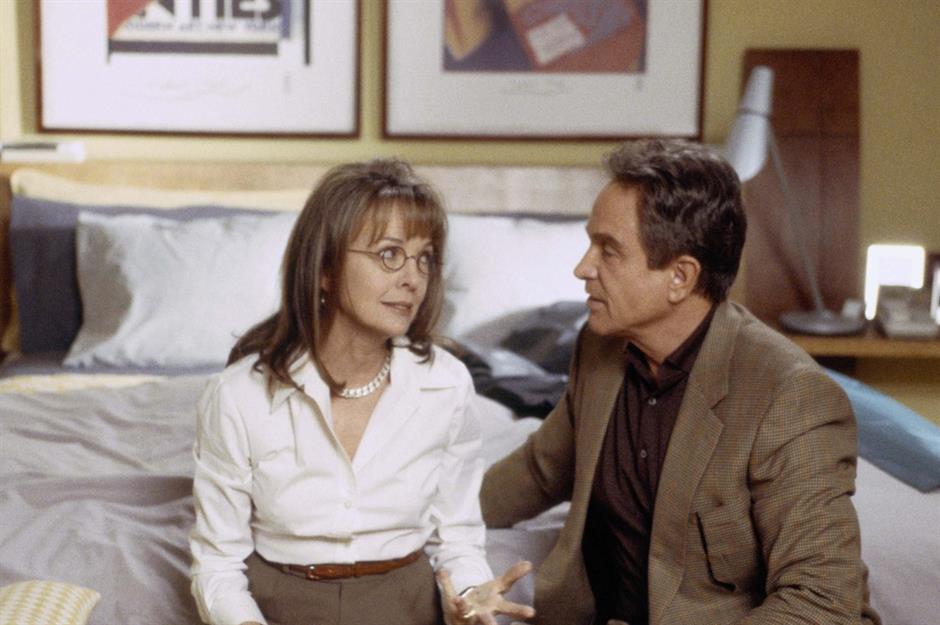
Town & Country reportedly started out with a much more modest budget, but with the addition of star power, including the likes of Diane Keaton, Warren Beatty, and Goldie Hawn, costs soon began to soar. Production delays and numerous script rewrites saw the budget rise further and, all in all, it's estimated that the production budget was around $90 million, according to Box Office Mojo. An unfathomable sum when you consider that Town & Country was a rom-com flick with no expensive CGI or set design.
Despite its skyrocketing budget and all-star cast, audiences and critics alike failed to be impressed with Town & Country. The film pulled in a pitiful $10.4 million at the global box office, losing a resounding $79.6 million. That's $139.9 million (£107.4m) when adjusted for inflation, considering the film was released in 2001.
Sponsored Content
Monster Trucks: lost $141.8 million (£108.9m)

Monster Trucks was released by Paramount on Boxing Day 2016. With a $125 million production budget and a huge marketing investment, it was hoped the film would attract families with young children. However, it was a monstrous disaster, grossing only $64.5 million worldwide.
Many critics claimed a crucial element in the film's failure was the lack of star power to draw in crowds. The two top-billed actors were Lucas Tiller and Rob Lowe, who seemingly didn't have the recognition required to front such a big-budget project. It's believed that the movie's total losses amounted to a staggering $109.2 million, or $141.8 million (£108.9m) in today's money.
King Arthur: Legend of the Sword: lost $142.9 million (£109.8m)

Warner Bros. was so confident that 2017's King Arthur: Legend of the Sword would be a smash that it gave the film a hefty $175 million production budget, with five sequels planned. However, the box office bomb was the studio's biggest disaster to date, grossing only $148.7 million globally, meaning an overall reported loss of $112.8 million. That's a whopping $142.9 million (£109.8m) in 2024 money.
The casting of Charlie Hunnam, best known for his role in Sons of Anarchy, as Arthur was blamed for the film's failure. Audiences also didn't like that the plot was a prequel to the classic Arthurian legend, stating they didn't want to wait for a sequel to get to the actual meat of the story. Furthermore, the lack of women in the cast was another point of criticism. Needless to say, Warner Bros. swiftly cancelled those sequel plans.
Deepwater Horizon: lost $146.1 million (£112.2m)

Lionsgate's 2016 Deepwater Horizon told the real-life story of the Deepwater Horizon disaster: the drilling rig explosion and resulting oil spill that occurred in the Gulf of Mexico in 2010. Despite positive reviews, two Oscar nominations, and the casting of Hollywood heavyweight Mark Wahlberg in the lead role, the film was a flop. It grossed $121.8 million worldwide, significantly less than its $156 million production budget.
The film's biggest issue was that it drew in a primarily older audience: on the opening weekend alone, 67% of ticket buyers were over the age of 35. To justify such a large budget, a production needs to appeal to the masses, which Deepwater Horizon clearly didn't. The film is projected to have lost $112.5 million in total, a staggering $146.1 million (£112.2m) in today's money.
Sponsored Content
How Do You Know: lost $148.1 million (£113.7m)

The 2010 romantic comedy How Do You Know featured an all-star cast, including Reese Witherspoon, Owen Wilson, Jack Nicholson, and Paul Rudd. With those names alone, you'd think the movie would be a hit. However, the film made a mere $48.7 million at the worldwide box office, a pittance compared to its $120 million production costs.
Strong competition on its opening weekend from the likes of Black Swan, Tron: Legacy, and The Fighter is considered to be one of the main reasons for the film's failure. This, combined with bad reviews, doomed Sony's big-budget production. With additional costs such as marketing factored in, it’s reported the film lost a painful $104.3 million. That's an eyewatering $148.1 million (£113.7m) in today's money.
Joker: Folie à Deux: $150 million + (£120m+)

Sequel Joker: Folie à Deux was expected to be a massive box office hit. After all, the first Joker film grossed over $1 billion worldwide, despite having a modest production budget of $65 million. Consequently, the recently released sequel was handed a much larger budget of $200 million (£153m) with the hope of creating another billion-dollar blockbuster. The movie also comes with a huge marketing budget of $100 million (£76.8m), with a Warner Bros. source telling Variety that the movie needs to gross $375 million (£288m) just to break even.
Alas, Joker: Folie à Deux has received a poor critical reception, with its musical format an innovation too far for fans of the original outing. It's grossed just $191.9 million worldwide (£147m) at the time of writing and is reportedly on course to lose more than $150 million (£115m).
Moonfall: lost $152.8 million (£117.4m)

Sci-fi disaster movie Moonfall was released in February 2022. Despite a blockbuster budget of $150 million and the star power of Hollywood icon Halle Berry, the film grossed just $67.3 million globally.
Factoring in other costs, the ill-fated flick lost a grand total of $139.6 million, or $152.8 million (£117.4m) today. Stiff competition at the box office and a slew of negative reviews from critics were cited as reasons the big-budget bonanza flopped.
Sponsored Content
John Carter: lost $154.1 million (£118.4m)
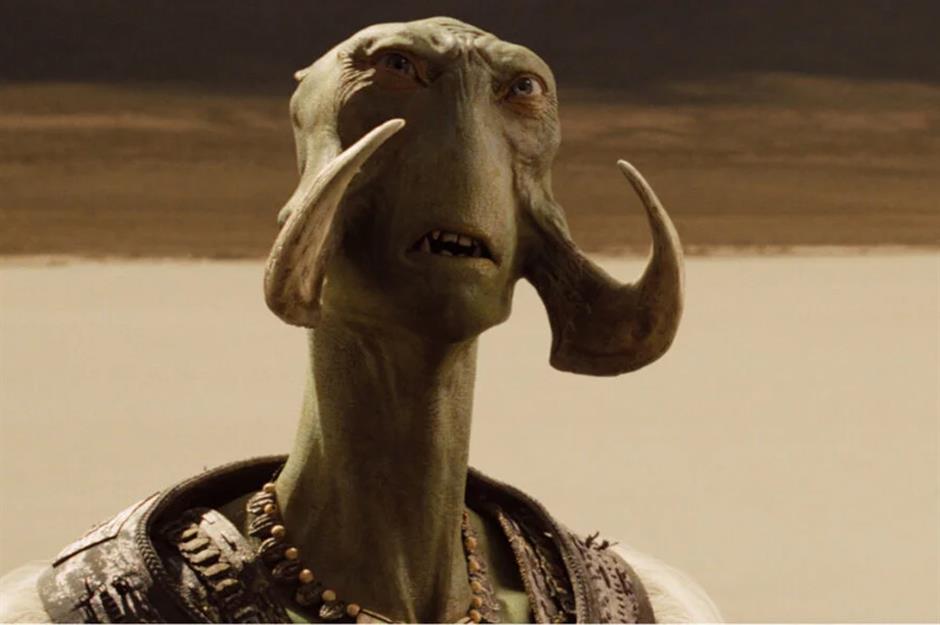
It’s reported that Walt Disney Pictures gave 2012's John Carter a whopping budget of $306 million, confident that the sword-and-sandal space saga would be a hit. However, audiences struggled to get on board with the movie's wacky premise. It made just $284.1 million worldwide, resulting in a total loss of $113.5 million, or $154.1 million (£118.4m) in 2024 money.
The film's huge budget might well have doomed John Carter from the outset. Disney had originally intended for the movie to be a trilogy, but the plans were quickly scrapped.
The Matrix Resurrections: lost $157.4 million (£120.9m)

The Matrix Resurrections had a blockbuster budget of $190 million. Despite this, the fourth instalment of the mindbending franchise banked just $157.3 million at the worldwide box office, or $32.7 million less than its production costs.
Overall, the 2021 movie lost $133.8 million, or $157.4 million (£120.9m) when adjusted for inflation. Its hybrid release in cinemas and on streaming platform HBO Max was partly blamed for the epic failure.
Strange World: lost $160 million (£122.9m)

Disney's family-friendly feature, Strange World, was released in November 2022. Never heard of the movie? You're not alone. A lack of promotion was blamed for the failure, with some moviegoers taking to Twitter to complain Disney did nothing to market the movie.
The animated adventure flick had an estimated production budget of between $135 million and $180 million but pulled in just $70 million globally. When factoring in other costs like marketing and distribution, Deadline estimates the movie lost a painful $147 million, or $160 million (£122.9m) in today's money.
It's not all bad news though. When it premiered on Disney+, Strange World became the number one movie on the streaming platform.
Sponsored Content
The Adventures of Pluto Mars: lost $161.4 million (£124m)
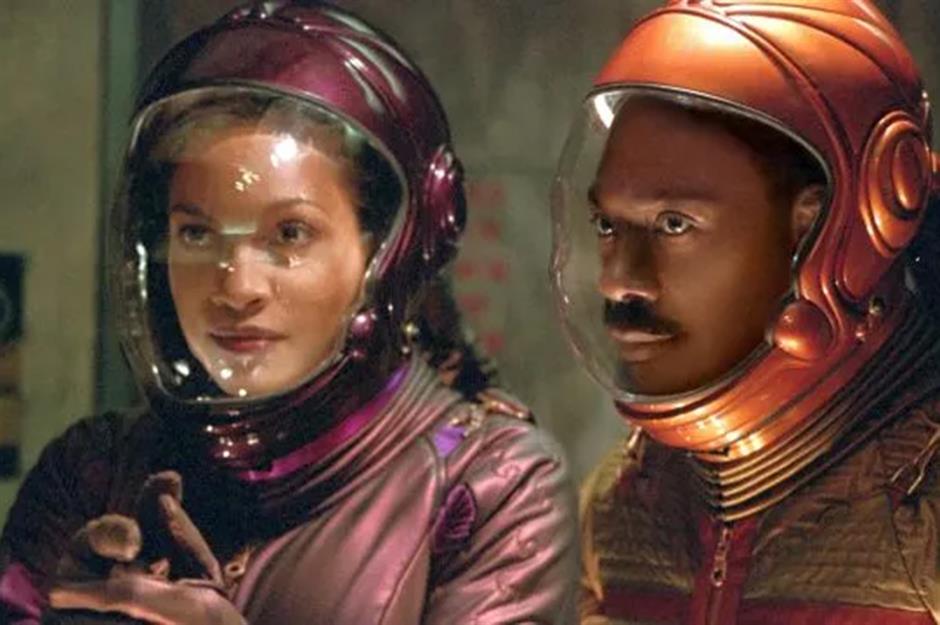
Eddie Murphy was the king of comedy in the 1990s and early 2000s. Even he had his share of box office disasters though. Murphy's worst flop to date is undoubtedly 2002’s wacky space comedy The Adventures of Pluto Mars. Despite numerous script rewrites over the course of a 20-year period and a gigantic budget of $100 million the film was a resounding dud.
According to Box Office Mojo, it only made $7.1 million worldwide, losing a shocking $92.9 million at the box office. When adjusted for inflation, that comes to $161.4 million (£124m). Murphy even slammed the movie himself, saying wryly in an interview: "I know two or three people that liked this movie."
Cutthroat Island: lost $180.1 million (£138.3m)
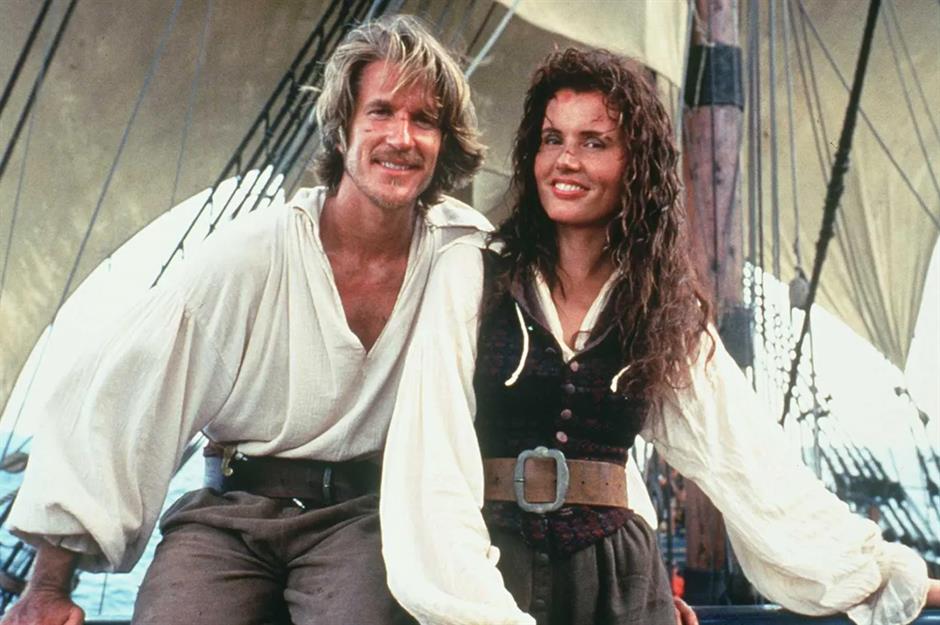
A pirate adventure movie, 1995's Cutthroat Island was such a resounding flop that the production studio behind the flick, Carolco Pictures, had to file for bankruptcy. The film immediately got off to a bad start when Hollywood legend Michael Douglas pulled out of his starring role. Then, expensive script rewrites and set building caused the budget to soar to $98 million, according to Box Office Mojo.
Slammed by audiences and critics alike, the ill-fated nautical film pulled in just $10 million at the global box office, losing a hefty $88 million. That's a jaw-dropping $180.1 million (£138.3m) in today's money.
Turning Red: lost $184.3 million (£141.5m)

Disney's animated movie Turning Red was released in March 2022. Despite a mammoth budget of $175 million, the family-friendly flick pulled in a pitiful $20.1 million at the box office, or $154.9 million less than its production costs.
Though the film premiered to positive reviews on streaming platform Disney+, the studio made the odd decision to only release it theatrically in selected countries, contributing to its lack of financial success. Factoring in other costs such as marketing, the film lost $168.4 million in total. In today's money? A painful $184.3 million (£141.5m).
Sponsored Content
The Flash: $200 million (£153.6m)
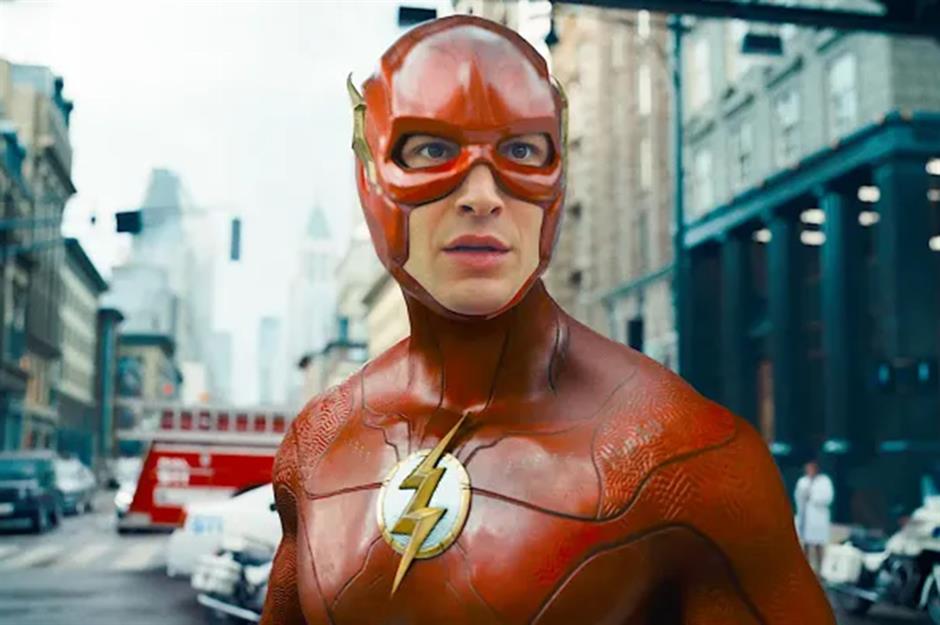
DC's The Flash, released in 2023, boasted a production budget of $220 million (£168m) and marketing costs of $150 million (£115m), with additional expenses such as distribution likely pushing the budget even higher. Despite these significant investments, the film only managed to pull in $271.3 million (£208m) at the box office.
Controversies surrounding the conduct of the leading star, Ezra Miller, plagued the film before its release. Additionally, it opened to sub-par reviews, cementing its status as a box office bomb.
Warner Bros. is estimated to have suffered a loss of around $200 million (£153.6m) due to the film's failure.
Mars Needs Moms: lost $200.3 million (£153.8m)
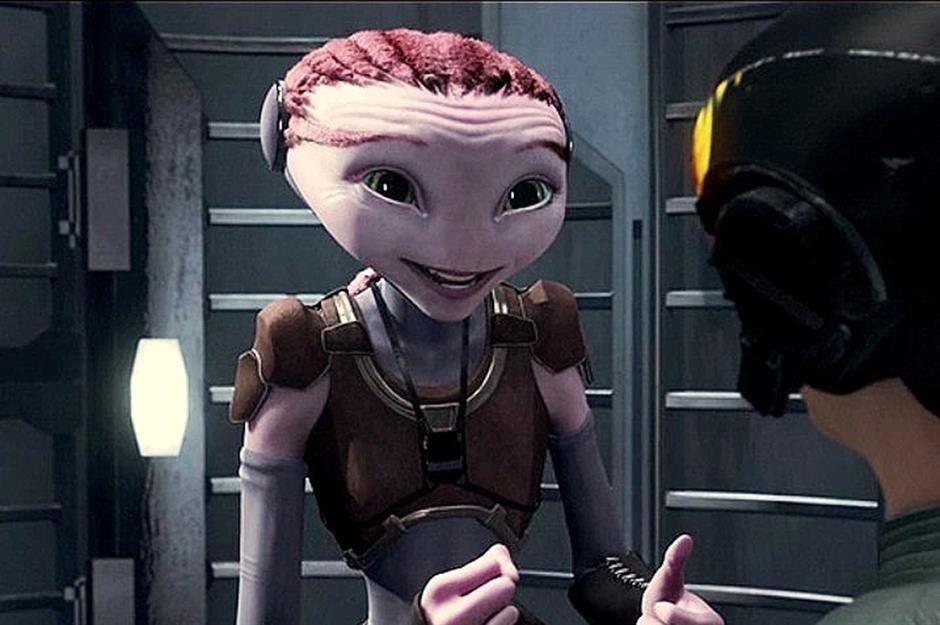
2011's Mars Needs Moms made a pitiful $39.2 million at the global box office, a staggering $110.8 million less than its $150 million production budget.
The motion-capture animation turned off audiences before it even hit cinemas, with some calling the sci-fi movie's premise "creepy". It's also been suggested that the word "moms" in the title may have deterred boys from going to watch it. In total, the film lost a reported $143.4 million, a whopping $200.3 million (£153.8m) in today's money.
The Marvels: lost $237 million (£182m)

Superhero movie The Marvels hit the silver screen in 2023, starring Brie Larson as Captain Marvel. Given that 2019's Captain Marvel grossed over $1 billion globally, the studio felt confident that The Marvels would be a success. Consequently, it had an estimated production budget of $220 million (£168m).
Alas, the film was an epic flop, grossing just $206.1 million (£158m) globally. Marvel's increasingly formulaic approach to filmmaking was largely cited as the reason the movie failed. When factoring in additional costs such as marketing, it’s believed The Marvels lost an eye-watering $237 million (£184m).
The following films in our round-up were released during the COVID-19 pandemic, which was a major factor in their failure, and are not included in our overall ranking...
Sponsored Content
The Call of the Wild: lost $102.7 million (£78.9m)

First up, we have The Call of the Wild, based on the 1903 Jack London novel of the same name. Starring Hollywood heavyweight Harrison Ford, the film follows the adventures of a dog named Buck. Confident it would be a big hit, Disney gave the project a budget estimated to be somewhere between $125 million and $150 million.
Though the CGI was criticised, the movie opened to positive reviews. Given the film's February 2020 release date, it appears the pandemic was the biggest factor behind its lack of success at the box office. The Call of the Wild grossed $111.1 million worldwide. Factoring in marketing costs, it's estimated that Disney lost $86.1 million, or $102.7 million (£78.9m) when adjusted for inflation.
Chaos Walking: lost $132.3 million (£101.6m)

Tom Holland’s Spider-Man: No Way Home (2021) may have broken pandemic-era box office records, but it followed a major flop earlier in the year in the form of sci-fi adventure saga Chaos Walking. Lionsgate, hoping to replicate the success of The Hunger Games, snapped up the rights to the critically acclaimed young adult book trilogy of the same name, written by Patrick Ness.
Despite the combined star power of Holland and Star Wars alum Daisy Ridley and a production budget estimated to be around $125 million, the project was doomed from the get-go. In fact, at an early 2018 screening, the movie was described as "unreleasable" and had to go through timely and expensive reshoots. This wasn't enough to save it, and Chaos Walking grossed a painful $26.5 million at the box office. Factoring in additional costs, it’s believed the film lost a staggering $112.5 million. That's $132.3 million (£101.6m) in today's money, but the pandemic is a large factor in its failure at the box office.
The Suicide Squad: lost $141.3 million (£108.5m)

Yet another movie to fall victim to the COVID-19 pandemic was The Suicide Squad. DC's anti-hero flick had a gigantic budget of $185 million but pulled in just $168.7 million at the worldwide box office.
Factoring in costs such as distribution and marketing, the film lost $120.1 million, or around $141.3 million (£108.5m) when adjusted for inflation. Besides the pandemic, a simultaneous release in cinemas and on streaming platform HBO Max was cited as a factor in its failure.
Sponsored Content
Onward: lost $161.4 million (£124m)
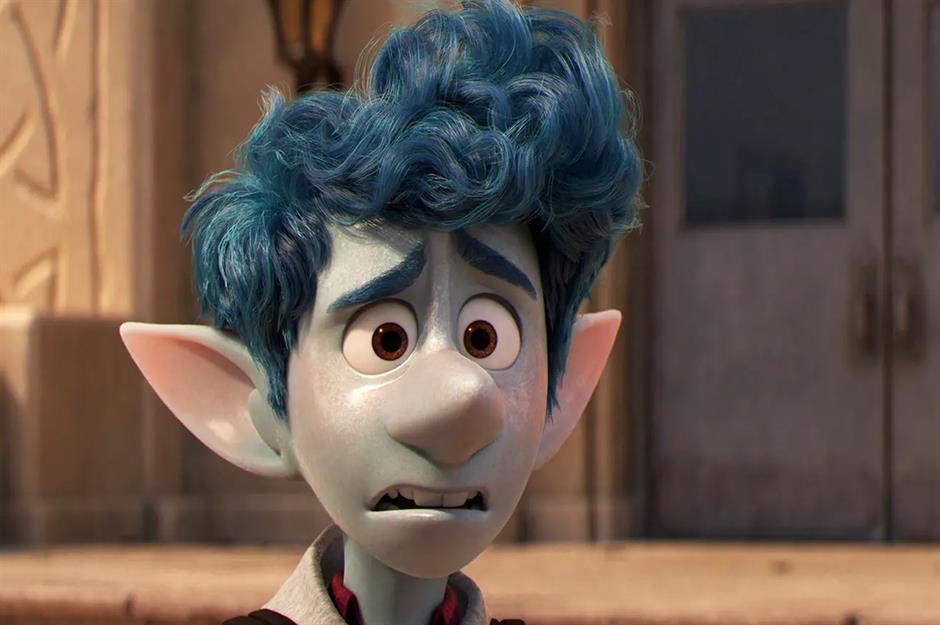
Pixar's animated feature Onward boasted the (voice) star power of two Marvel superstars: Tom Holland from Spider-Man and Chris Pratt from Guardians of the Galaxy. Despite opening to positive reviews, the movie was Pixar's biggest failure to date, grossing just $141.9 million worldwide, despite production costs of $200 million.
With a March 2020 release, Onward appears to be yet another victim of the pandemic. After factoring in promotional costs, the production is estimated to have lost $135.3 million, or a huge $161.4 million (£124m) today. However, it gained a whole new audience when it came to Disney's streaming service Disney+, although it's impossible to say what that subscription audience was worth.
Wonder Woman 1984: lost $170.4 million (£130.9m)
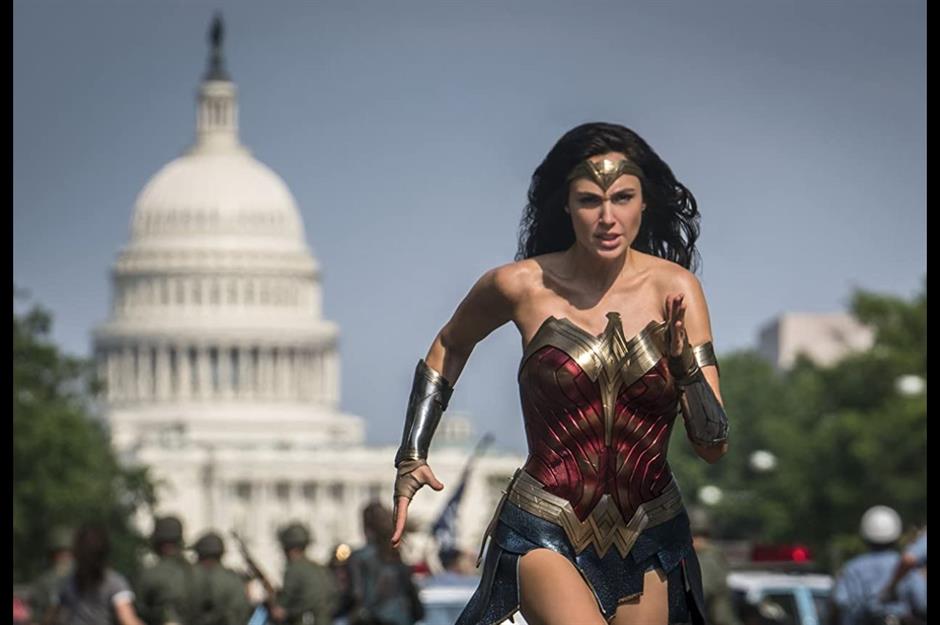
Due to the pandemic, Wonder Woman 1984's release was pushed back several times from its original June 2020 date. When it was finally released on Christmas Day 2020, the movie used a then unusual tactic, hitting cinemas and the HBO Max streaming platform at the same time. Technically, DC's superhero saga was a box office flop, grossing just $166.5 million against a budget of $200 million. When promotional costs are factored in, Wonder Woman 1984 lost $142.9 million at the box office, or $170.4 million (£130.9m) in today's money.
While monetary values for streams are unknown, it’s safe to say the movie was a streaming success. HBO Max gained an impressive 17.2 million subscribers in the fourth quarter of 2020, largely credited to Wonder Woman 1984. The movie was watched 14.9 million times on the platform.
Mulan: lost $174.5 million (£134m)

A major flop for Disney, 2020’s Mulan made just $70 million at the worldwide box office, an astonishing $130 million less than its $200 million production budget. It reportedly lost $146.3 million in total, or $174.5 million (£134m) in 2024 money. The live-action reboot formula had previously worked well for the likes of Cinderella and Beauty and the Beast, so why was Mulan such a failure?
The film was dogged by controversy, with American audiences missing songs and characters that had been cut to cater to a Chinese audience. Equally, Chinese viewers felt disconnected from the film due to a distinct lack of diversity in the production team. Despite these controversies, Mulan was a streaming success, with insights from 7Data suggesting that around 8.7 million subscribers in the US alone paid to download it via Disney+. With this in mind, it looks like the biggest reason the film failed to claw back its investment at cinemas was its March 2020 release date.
Sponsored Content
Jungle Cruise: lost $177.4 million (£136.2m)
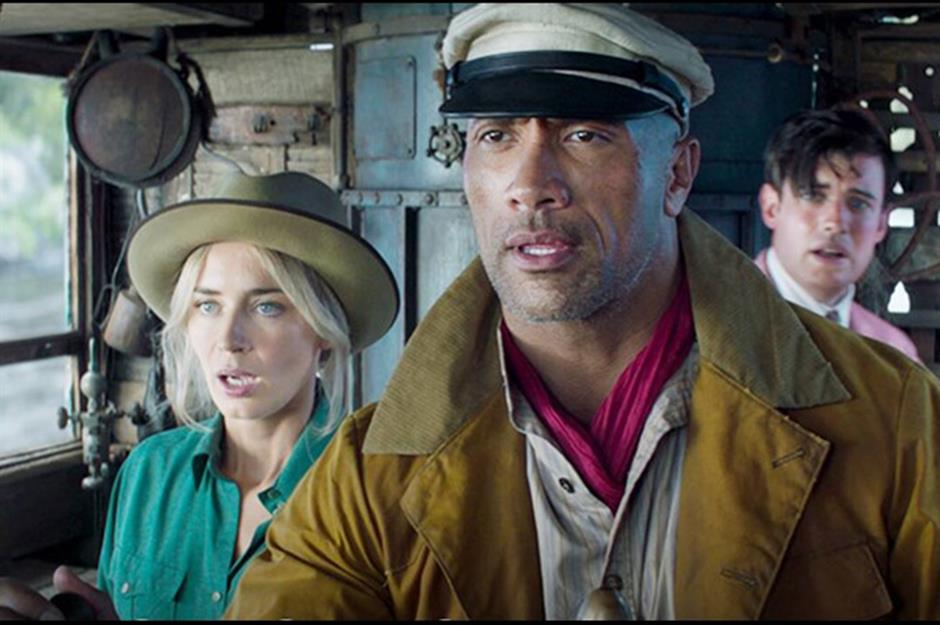
Disney’s Jungle Cruise, starring Dwayne Johnson and Emily Blunt, had a huge budget of $200 million. The 2021 adventure movie grossed $220.9 million at the global box office, technically making a small profit of $20.9 million.
However, when you factor in other costs such as marketing and distribution, the film actually lost $150.8 million, or $177.4 million (£136.2m) in today's money. Underwhelming reviews and the COVID-19 pandemic were blamed for the failure.
Now discover the highest-grossing Disney movies of all time
Comments
Be the first to comment
Do you want to comment on this article? You need to be signed in for this feature